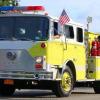Sign in to follow this
Followers
0

Basics Begin, But Shouldn't End, With FF I
Started by
RWC130,
15 posts in this topic

This topic is now closed to further replies.
Sign in to follow this
Followers
0
-
Recently Browsing 0 members
No registered users viewing this page.
